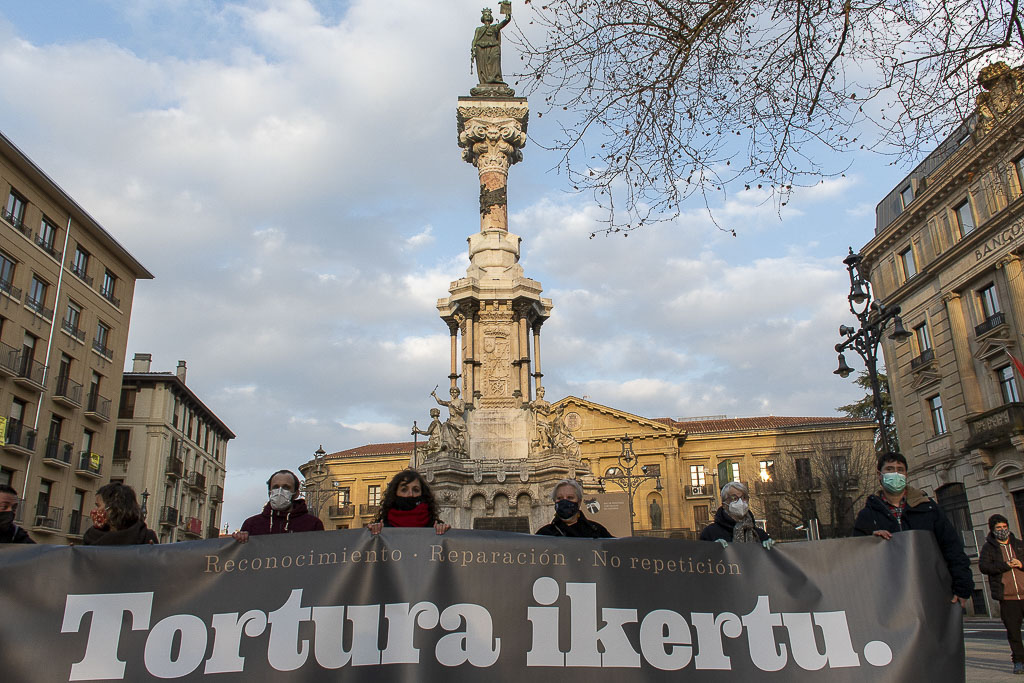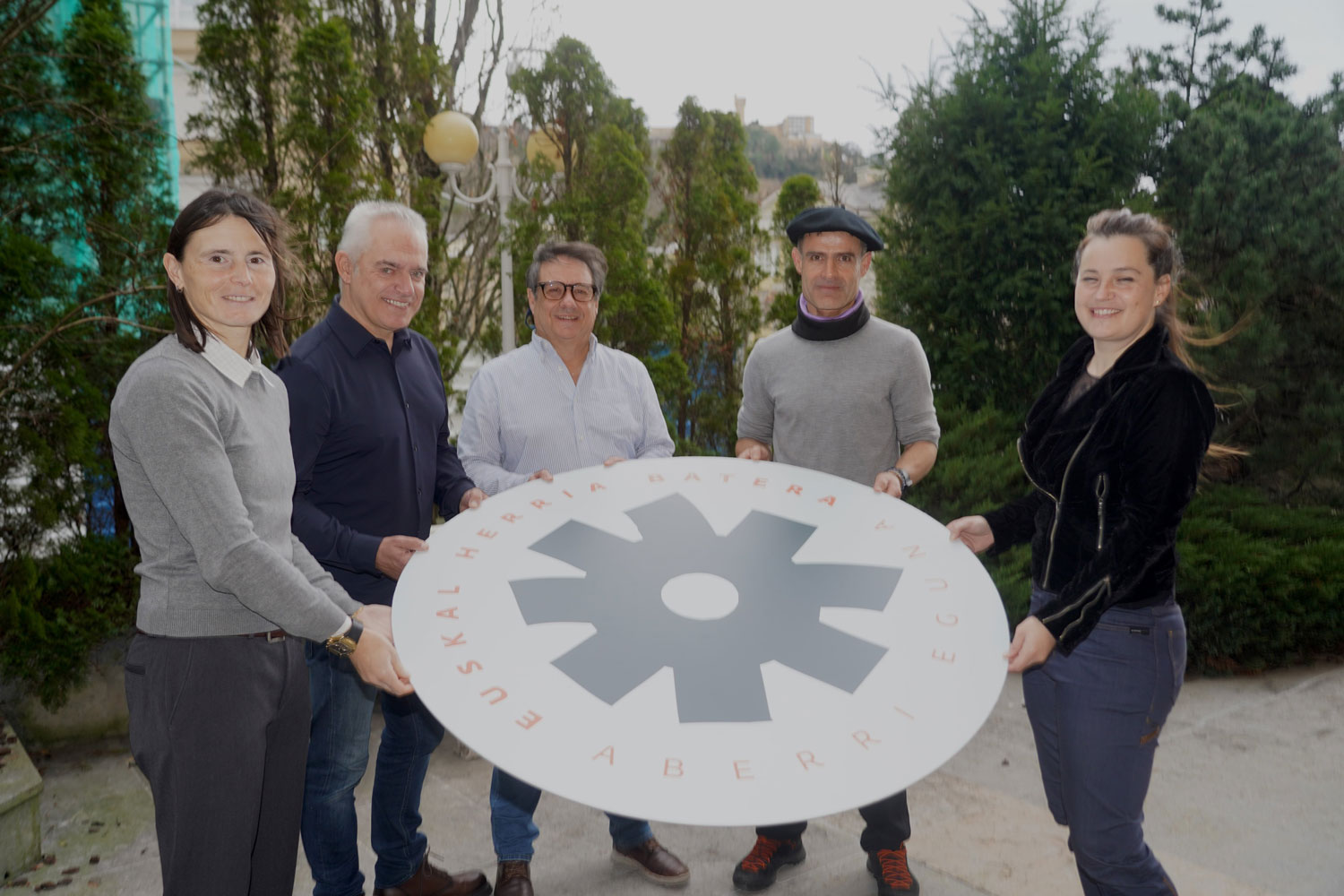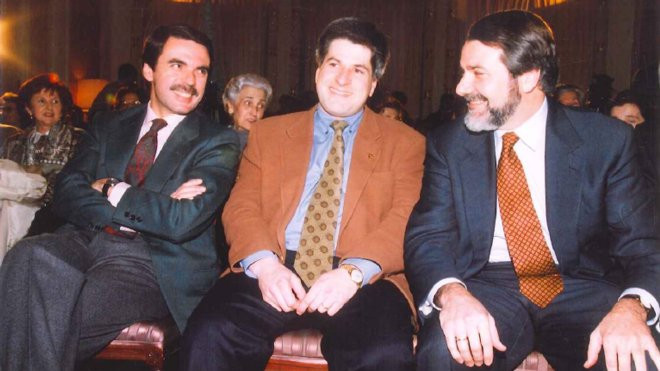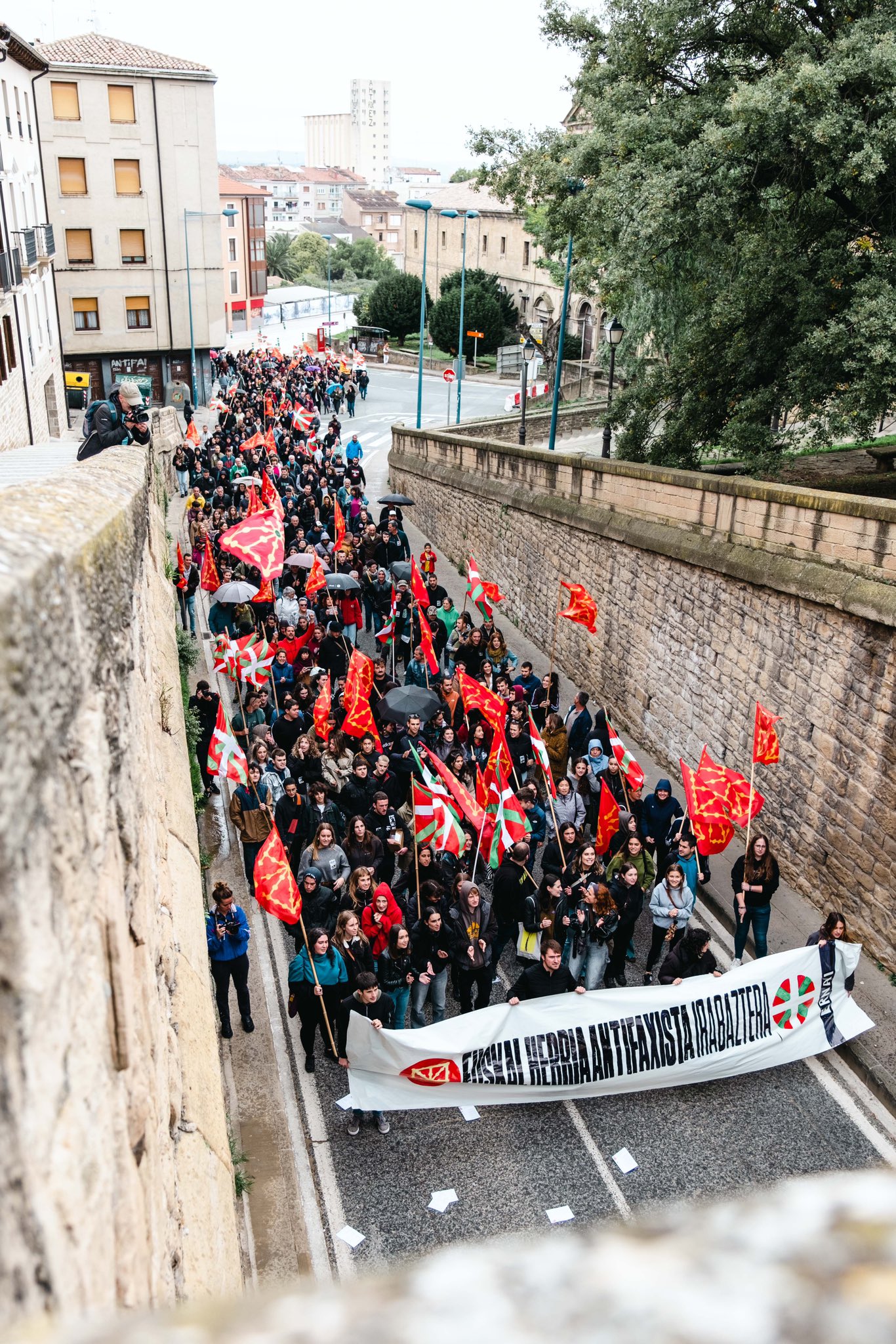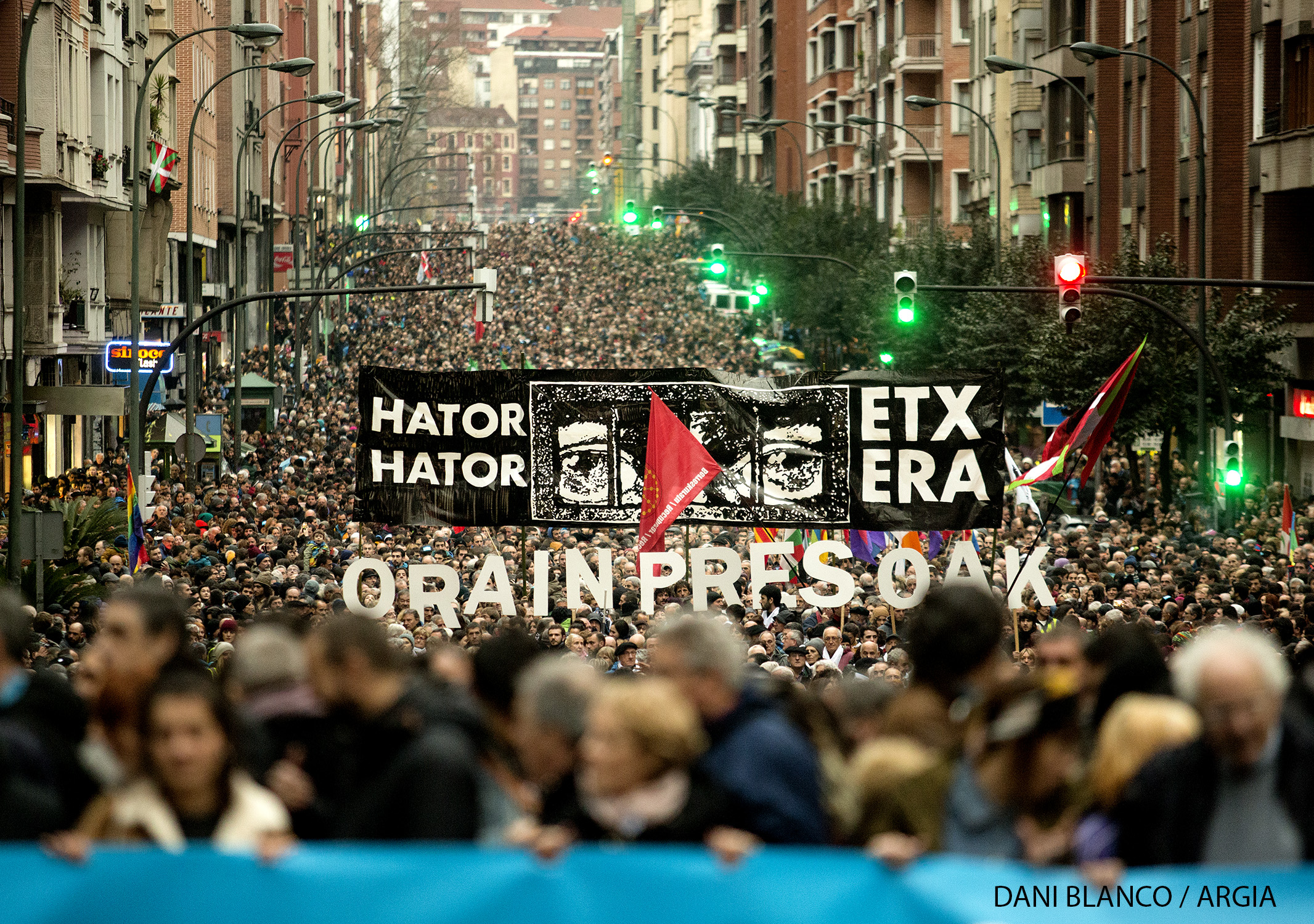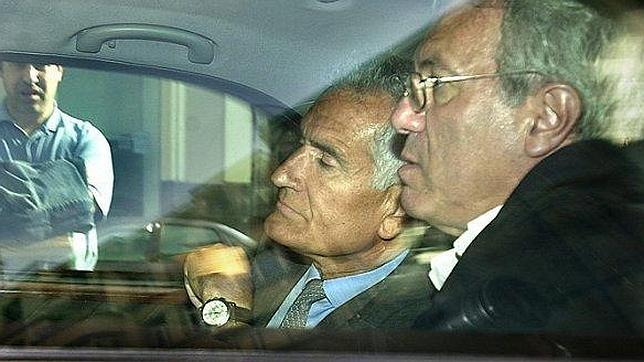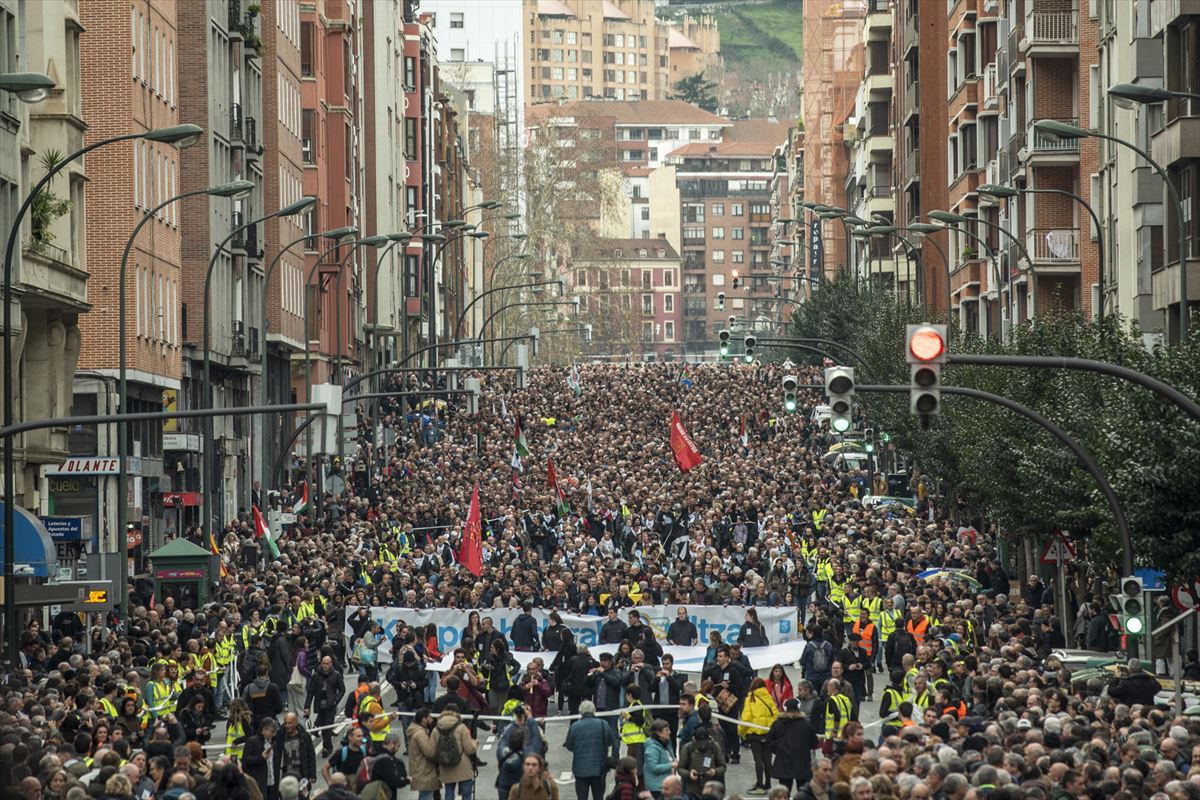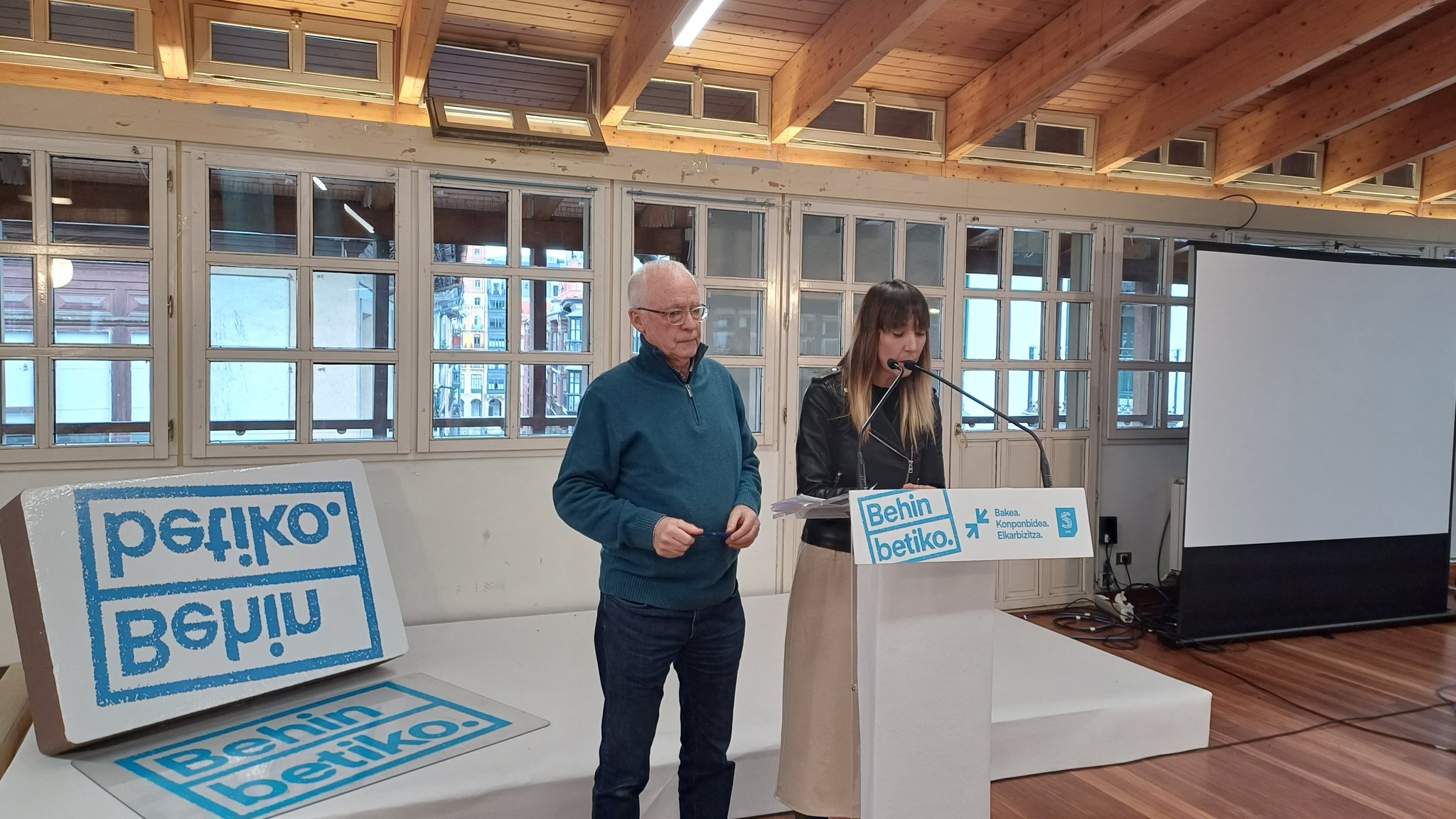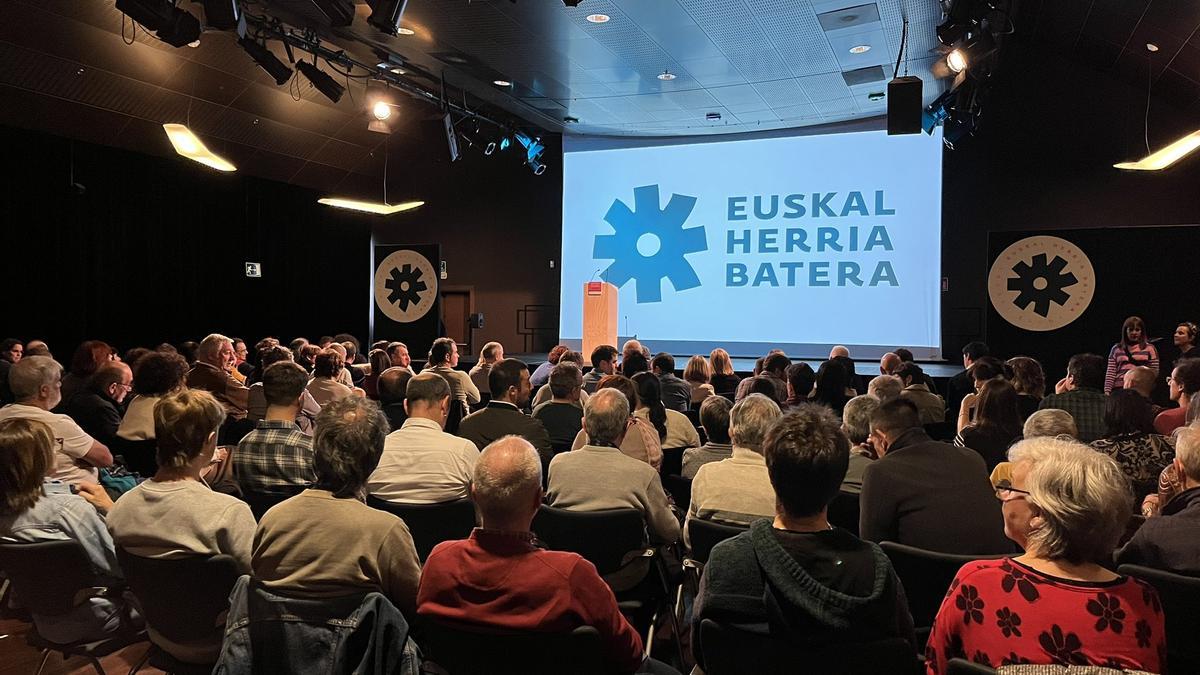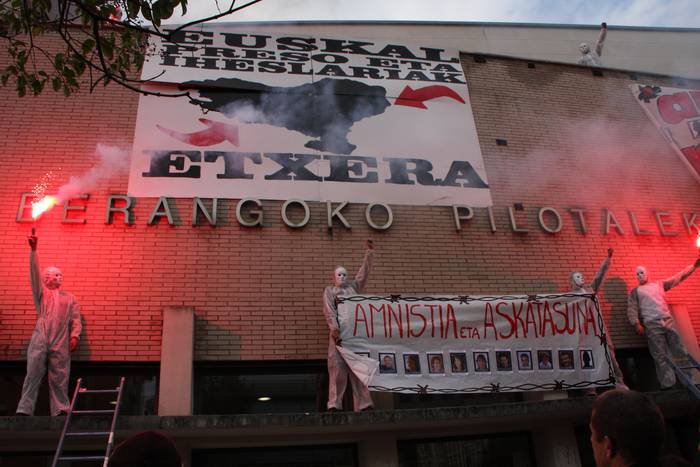"I don't regret having started my political career at ETA"
- After his passing through ETA, Bikila (Orereta, 1945) was for many years one of the leaders of the Revolutionary Communist League (LKI) and of Zutike.En the present is Alternatiba and EH Bildu. Give to Caesar Caesar. He has written several occurrences on the “narrative” of violence (IKE 1937) in which he analyzes what has happened in the last decades in the Basque conflict. A relentless wrestler, we have found ourselves preparing for the return of retirees to Gipuzkoa by bicycle.
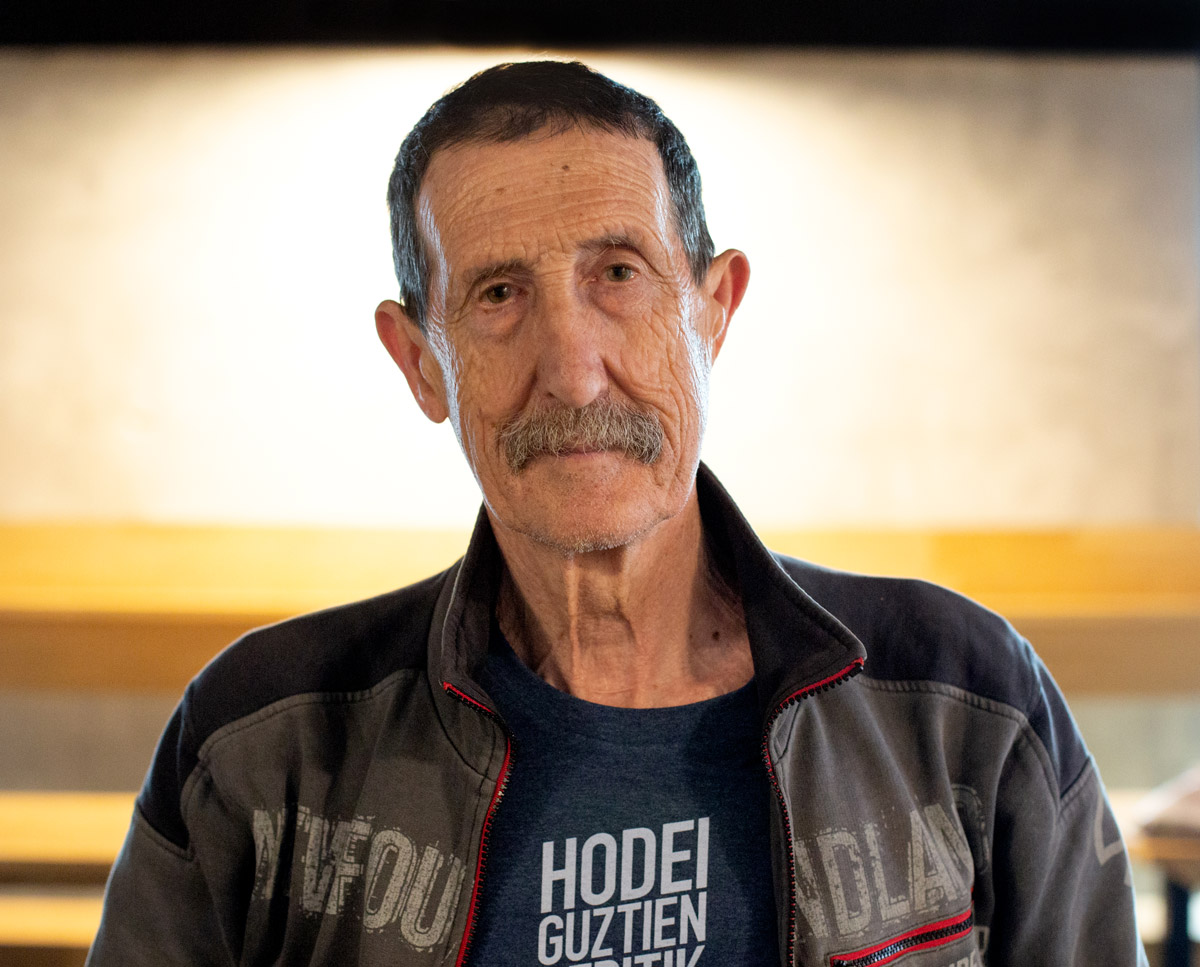
He says we're in the story struggle. What's important to you to count?
Let the leaves not hide the forest. There has been a long struggle here, its roots are in oppression and some want to eliminate that struggle in the debate on terrorism. The state presses a people here, that is the background to the problem, but a critical analysis must also be made of the resistance that has been against it. Includes the trajectory of ETA. It is said here that it has been a struggle between democracy and terrorism and that it has won democracy, but I do not agree with it because democracy, for many reasons, has been lost: there is no right to self-determination, laws against human rights have been passed in the fight against ETA, it has been tortured ... All of this must therefore be made clear.
On the other hand, according to another speech that has been here, the struggle with ETA was the culmination of the revolutionary, with which I do not agree either. There is everything in ETA’s strategy and trajectory, including very dark and reprehensible sections. The goal and the path are for me, and ETA’s trajectory has not passed. That is what I say with the title of the book – Dame Caesar Caesar –: that of ETA and that of the State itself.
It talks about the state and ETA. How do you see the PNV in this story?
The PNV is currently deploying the following revisionist motto: The birth of ETA was a tragedy, it should not be created. Can we not, therefore, raise a dictatorship with arms? It is entirely legitimate to me. Why then the Basque Army in the War of 36? In 1969, Artajo and [Alberto] Asurmendi, members of EGI, killed the explosives that were also in their hands. I do not regret having started my political career in ETA at that time.
When did you start at ETA?
In 1964, at 19. Orereta's first official ETA team was organized by me.
Then you VI of ETA. You stayed in the congress and left the armed struggle. Why? Things
were not so fast, we had no intention of abandoning the armed struggle at first. When almost the entire ETA address was captured at Artekale in Bilbao, we could not believe, for us the direction was invincible. In my case, in 1969, I left the mili and had to serve a prison sentence. He left jail and called me the release of ETA in Gipuzkoa to attend a meeting in Bilbao. At the meeting he said that all the liberated from ETA were in jail or in exile, so the eight of us who were there would be in the provisional Ttypia Assembly. I, therefore, had just left prison and freed myself from the region of Amorebieta to Deba, where I had the Arrasate centre. We reorganized the organization, and then we discovered that this famous thesis of repressive action had a mistake: when the armed activity was supposedly elevated, the repression cut it off and it was not moving forward.
I, therefore, just out of jail, freed myself in ETA and welcomed myself to the region of Amorebieta to Deba, with the Arrasate centre.
We also did a study on ETA, we thought it had to stop being an interclass group to become a workers' party. But we also needed the National Front, guided by the working side, in short, a very classic scheme, which was in Vietnam, Algeria or many other places. We gradually organized the organization and began preparing the VI. The congress ended in 1970 with the division, as occurred five years earlier between ETA Berri and ETA Zaharra.
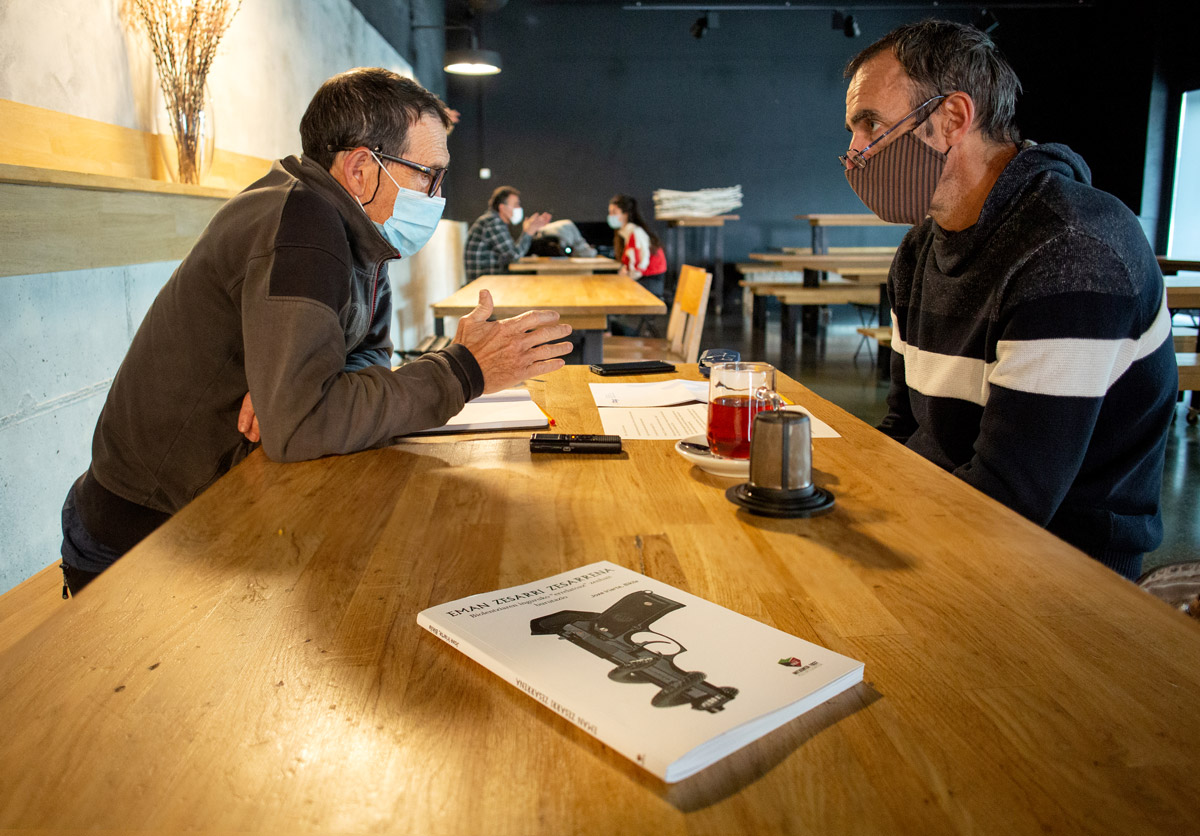
So, you stay the same with the actions.
Yes, and in one of them we got two million pesetas. At that time, repressive forces killed a worker in Granada, and we said he would give his family an amount. This brought us the first conflict with [Juan José] Etxabe, who denounced us saying that we had to give the Spaniards an amount of money from the resistance. A rather curious front came together against us: Social Democrats of Txillardegi, Beltza [Emilio López Adan] anarchists and militarist casetarras. There was also Madariaga. Meanwhile, it emerged in our womb [Jose Mari] Another line directed by Eskubi: Red Cells. For us, the right was like the pope and he told us that armed struggle would lead to disaster and that we had to leave it. We were surprised.
Therefore, three groups emerged. From Congress: on the one hand we, the majority with the intention of continuing with the armed struggle and with the majority of militants; on the other hand, Eskubi and those; and on the other hand, the Etxabetarras, a small group but with good people. The following year it was very confusing and we ended up acquiring the basis of trotism. We also made a critique of the ways of fighting, we wanted an armed group that would drive the people's revolt and not a small militarist group. In that development, which lasted between two and three years, we ended up breaking with ETA to become a revolutionary communist group. During this time, for example, Argala [José Miguel Beñaran] and Ortzi [Francisco Letamendia] moved away from our group.
Our goal was to organize the village, the turmoil, get people out into the street ... The landlords were a very small group, with good people, for whom it was easier to kidnap [The Consul of Cow], because they didn't have appliances and... Then they gradually organized themselves. We, for its part, attach importance to the popular organisation against trial. And also for the courts to leave the prison in Burgos, but the latter went wrong.
"A rather curious front came together against us: Social Democrats of Txillardegi, Beltza [Emilio López Adan] anarchists and militarist casetarras. Madariaga was also there."
When did ETA decouple the strategy and path for you?
Some believe that ETA was good and ETA was bad. I believe that many times the institutions change over time, so we have to judge what their strategy is and their role is at a particular historical moment. ETA was one in Franco, another in the Transition and another in the socialization of suffering. We VI. We left the armed struggle after the congress, but we recognized ETA the legitimacy for it, it fought the state apparatus and it acted with the intention of not harming the people. There was a moral advantage over dictatorship. Morality and ethics are complex things, on which I agree with Trosky: “Your morality and ours.”
But if you start with car bombs knowing that you can't control their consequences or leave it to the police to abolish the bomb placed in a big warehouse... You're also losing your target. It was once against the enemy, but then against many citizens, and there it was blurred to go against the enemy and against the people. That's perversion. If you lose that benchmark, you're lost to revolution. During the Cuban revolution, it was also discussed whether or not they could torture a prisoner enemy. I think not, of course.
Later LKI and EMK would create Zutik. The book doesn't talk about that, but the Revolution was close to that world, the group that engaged in armed struggle in the 1980s and 1990s. I think I was closer to EMK, but how did it influence their relationships?
As soon as you were born standing, there was no group of the Revolution. Around the armed struggle there were several experiences: ETA took its way, Iparretarrak his own and the Revolution his own. The Revolution was an armed struggle to activate social movements, and when a part of the radical Basque left did the work of his mother, the LKI's did not agree. ETA played in Champion against the State and in the regional league Revolutions. We understood organized violence, especially in street mobilizations, as self-defense against repression, and when the assembly was in the middle, we had experiences like this in Orereta during the Transition.
And what did they do in Orereta?
Fight with the police. When they came to suppress them, if you had to fight in the street all day long, a level of organization needed to respond. Yes, always within the assembly popular.Las guards must be present in the village, not representing the people.
"I think SGS do right the diversity on the left, they have to make their way and would give them just one tip: with sectarianism of light."
You are currently in Alternatiba and from there EH Bildu. The latter has just finished the congress. How do you see it?
Strong. I have seen in Congress that over the past ten years much has been clarified and strengthened. In the electoral context, he is strong, courageous and willing to take over the government. What is not prepared to welcome the government, as Lenin said, is not a revolutionary party. It's about the conditions in which you get to government. Reaching government when the socio-political movement is weak can be a problem, if you don't have a country mobilized to carry out your program, it can be peligroso.En
Lizarra-Garazi clearly saw that stopping ETA could organize a strong left-wing political force around the Abertzale left. That's happened with EH Bildu. Hence a lesson: how has the military failure – that of ETA – become a political victory, EH Bildu. It is very important that today he has a political force such as EH Bildu, and that is where I am in full. In any case, we are in a time of transition, and our challenge is to create a left-wing political, uncompromising and sovereign movement facing the state.
Communism is returning to a youth sector, where the Young Socialist Coordinator is. How does the movement see a communist veteran like you?
It's curious. Sectors that did not know the experience of the Soviet Union are putting mammals like Stalin back as idols. In Spain, this world is represented by the Front Obrero, very labour, communist and sectarian. The Basque Country is different, but it has all the characteristics of the old Orthodox Marxism. I'm surprised that a young movement has so little imagination. For example, I am surprised at the reading of feminism, despite neoliberal feminism, when feminism here has achieved in recent years the most massive mobilizations of citizenship and proletarians. However, I believe that they do well the plurality of the left, they have to follow their path and would give them one piece of advice: with the sectarianism of light. In this sector, there are six or seven groups that cannot be seen with each other. Let everyone work their way, but without falling into the blind sectarianism of yesteryear.
Jar gaitezen 2025erako proposamen politiko gisa, Espainiako Auzitegi Kolonialaren (AN) epai guztiak berrikusten hasteko eta makila bakoitzak bere belari eusteko.
Unionismoarekin lerrokatutako alderdi, sindikatu eta gizarte-erakunde gehienek, eta ez bakarrik horrela... [+]
Next Saturday, 11 January, the Sare citizens' network called for a new demonstration in Bilbao in defence of the rights of Basque prisoners. This is a unique opportunity to move forward on the path of coexistence in our people, after decades of violent confrontation and, even... [+]
Hatortxu Rock jaialdiko 29. edizioa egingo da larunbatean Atarrabian. Sarrerak jada agortuta daude, baina txandak osatzeko laguntza behar da oraindik.











